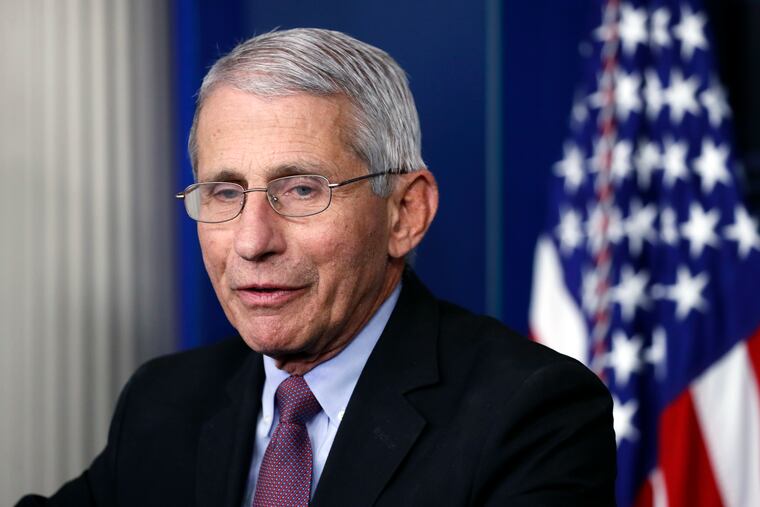Fauci warns of ‘really serious’ problems if U.S. reopens too soon
“We don’t know everything about this virus and we really better be pretty careful, particularly when it comes to children,” Fauci tells the Senate Health, Labor and Pensions committee.

WASHINGTON — The latest on the Senate Health, Education, Labor and Pensions committee hearing Tuesday on the coronavirus pandemic:
12:25 p.m.
Dr. Anthony Fauci had a sharp retort for Sen. Rand Paul after the Kentucky Republican said that Fauci was not the “end all” in knowledge about the coronavirus, and that it’s “kind of ridiculous” to suggest children should be kept out of school in the fall.
While agreeing that children on the whole do much better than adults with COVID-19, Fauci noted recent reports of severe disease among children and said it’s still really not well understood.
“We don’t know everything about this virus and we really better be pretty careful, particularly when it comes to children,” Fauci said. “I think we better be careful (that) we are not cavalier in thinking that children are completely immune from the deleterious effects.”
___
11:30 a.m.
Trump administration “testing czar” Adm. Brett Giroir tells the Senate that the U.S. could be performing at least 40 million to 50 million tests per month by September.
But that would work out to only between 1.3 million to 1.7 million tests per day.
Harvard researchers say the United States must be doing 900,000 by this Friday in order to safely reopen.
Giroir is assistant secretary for health at the Department of Health and Human Services. He spoke via video conference Tuesday at a hearing of the Senate Health, Education, Labor and Pensions committee.
____
11 a.m.
Dr. Anthony Fauci, the top U.S. infectious disease expert, says states that ignore the national guidelines for reopening the economy run the risk of spikes in coronavirus cases that may turn into new outbreaks.
“The consequences could be really serious,” Fauci tells the Senate Health, Labor and Pensions committee. Problems will escalate if states do not have the hospital capacity to treat patients and to isolate people exposed to the virus.
“There is no doubt, even under the best of circumstances ... you will [see] some cases appear,” as communities reopen, Fauci said. The guidelines are based on 14 days of gradually decreasing cases.
Fauci spoke by video conference to the hearing. He is self-quarantining after a White House staffer testified positive for the virus.
___
10:30 a.m.
A Senate hearing featuring Dr. Anthony Fauci and other top health officials got underway in a storied hearing room, but that’s about all that remained of Congress' pre-pandemic way of conducting oversight.
The senators running the event, Chairman Lamar Alexander of Tennessee and Patty Murray of Washington, were isolating at their homes and they spoke remotely.
Same for the marquee witnesses — Fauci, Robert Redfield, director of the Centers for Disease Control and Prevention, and Dr. Stephen Hahn, head of the Food and Drug Administration. Each of the three were exposed to a White House aide who had tested positive for the virus last week.
A few senators, such as Alaska Republican Lisa Murkowski and Connecticut Democrat Chris Murphy, attended the session in the hearing room. They wore masks, as did an array of aides buzzing behind them.
—-
10:30 a.m.
Dr. Anthony Fauci says the government is working on several potential vaccines for COVID-19.
“We have many candidates and hope to have many winners,” he tells the Senate Health, Education, Labor and Pension committee. “In other words, it is many shots on goal.”
But despite the rapid pace of work on vaccines, Fauci was offering no guarantees.
“The big unknown is efficacy,” he said.
Fauci heads the National Institute of Allergy and Infectious Diseases and is the government’s leading expert on the pandemic. He says he hopes to have a vaccine in advanced trials by late fall or early winter.
Fauci spoke by video conference to the hearing. He is self-quarantining after a White House staffer testified positive for the virus.